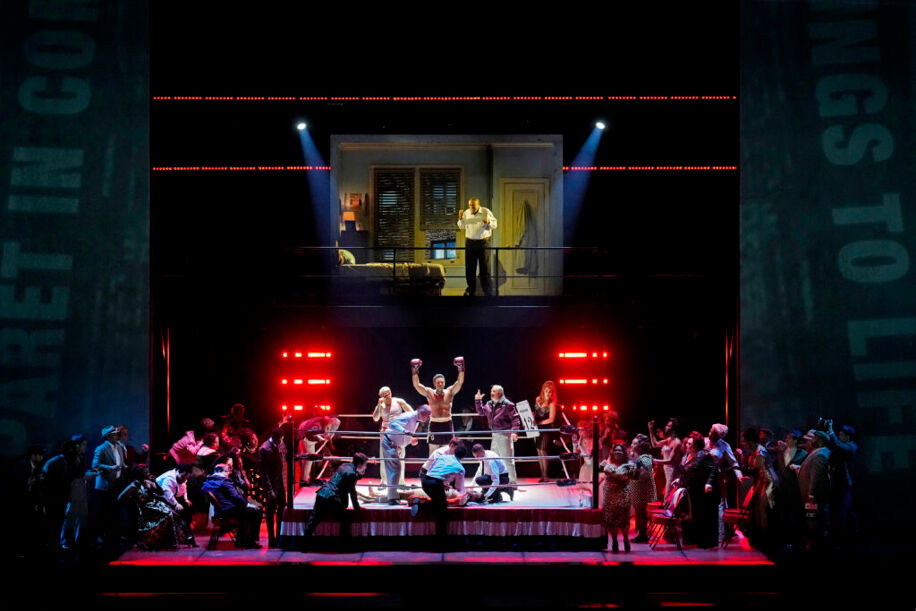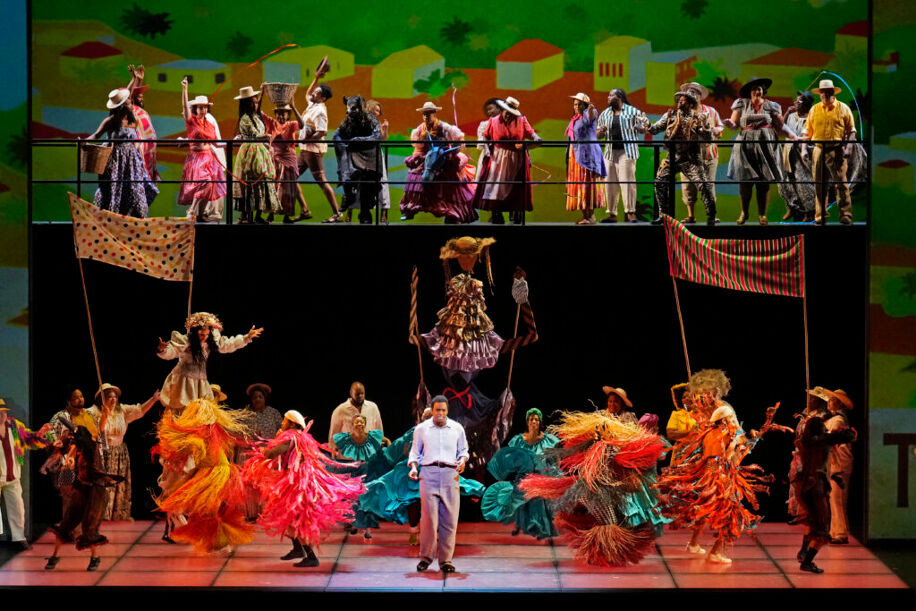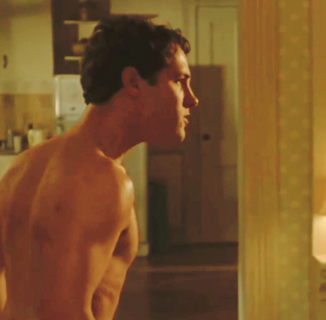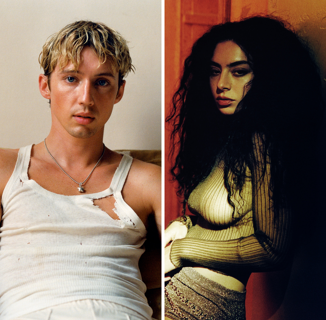Jockstraps and drag queens are not what one would expect to see onstage at the Metropolitan Opera. Nor was the work a Black composer until last year, when Terence Blanchard became the first with Fire Shut Up in My Bones, based on the memoir by journalist Charles M. Blow, who is openly bisexual. Now, Blanchard returns to the Met with Champion, another new work based on a true story about a queer Black man.
In 1962, the boxer Emile Griffith entered a bout at Madison Square Garden with Benny Paret, who taunted him with homophobic slurs at their weigh-in. Griffith defeated Paret in the ring, landing a series of fiery blows that ultimately proved fatal. Paret died 10 days later, though it has also been suggested that he’d suffered head injuries from previous fights. Griffith was wracked with guilt over his opponent’s death and continued to wrestle with his sexuality as he became a champion fighter.

Griffith, who died in 2013, led a double life for decades, dominating rivals at MSG and frequenting downtown gay bars and clubs. An activist who first met Griffith at the Stonewall Inn, just months before the 1969 riots, told The New York Times that the boxer liked to dance “fast and slow” with other men in flashy outfits, a side of himself he separated from his career. Though Griffith supported the gay rights movement behind the scenes, he was hesitant to speak publicly about his sexuality.
“I was drawn to Emile’s story because of the fear he held of not being able to celebrate his accomplishments openly with anyone that he loved,” Blanchard tells INTO. Secret desires, tragic deaths, and tortured souls are all familiar to opera audiences. Though few have experienced them quite like this.
I killed a man and the world forgave me, and I love a man and the world wants to kill me.
Emile, Terrence Blanchard’s “Champion”
“One phrase that Emile supposedly said really haunted me,” Blanchard says. It’s a lament Emile shares near the end of Champion that encapsulates its central contradiction: “I killed a man and the world forgave me, and I love a man and the world wants to kill me,” Emile reflects. “That made me think there was so much to his story,” Blanchard says.
Onstage, Emile appears both as an older man suffering from dementia, sung by Eric Owens, and as a young boxer during his heyday, sung by Ryan Speedo Green. As the elder Emile looks back on his life, he continually returns to the question of where he belongs, searching for a place to rest his fraying mind. In flashbacks, Emile emigrates to New York from St. Thomas, where a send-off number showcases vibrant Caribbean dance and costumes. He arrives in Manhattan with an unlikely combination of skills as a baseball player and a hatmaker. His boss at the millinery where he lands a job moonlights as a boxing coach and, noting that Emile is built like “a brick shithouse,” ropes him into training.

In his private life, Emile seeks out a street with no name and an unmarked door that leads to Hagen’s Hole, a shadowy bar “filled with ghosts” — queer people whose desires are forced into the shadows. “There’s only one pussy in the hole and that’s me,” sings the proprietor of the bar (Stephanie Blythe), as an ensemble of drag queens and other queer characters fill the sprawling Met stage. The night I attended, the lyric was met with hoots and applause.
Such scenes in Champion are a startling contrast from programming classically seen at the world’s largest opera house, and hopefully a preview of what’s to come. The Met plans to stage a slew of new and recent works — there will be 17 over the next five years — including some by artists less often represented. Blanchard’s Fire Shut Up in My Bones will be revived next season.
“I hope that these operas will showcase the talents of those who don’t get many opportunities,” Blanchard says of his recent works at the Met, his first as an opera composer. His previous work as a jazz musician includes scoring most of Spike Lee’s films, from Jungle Fever (1991) to BlacKkKlansman (2018) and Da 5 Bloods (2020). Blanchard, who is straight, also nods to the power of representation for people not often depicted onstage. “I hope that my operas can change some hearts and minds in dealing with these communities,” he says.
And diversity in storytelling means attracting new audiences to the Met, including those who may not have felt welcome before. I would consider myself among them; despite living in New York nearly 20 years and covering the arts as a journalist for 10, I had never set foot in the Met before last week. It took an opera like Champion, about a queer person of color, for me to be assigned a story like this one and to be invited inside to experience a production.
The woman who inspected my bag at the entrance exclaimed, “Hi, King!” as though we were old friends and she had long been expecting me. It was a rare and genuine gesture of welcome that continued with the opera onstage. The jockstraps, which made a modest cameo during a locker room scene, helped, of course. But a queer immigrant of color struggling with his identity on an operatic scale was a first I never expected to see. ◆
Champion plays at the Met through May 13.
Related:
Does Broadway Have a Trans and Drag Dilemma? It’s Complicated
Some Like It Hot tries to alter the “man in the a dress” trope. It doesn’t succeed.
This article includes links that may result in a small affiliate share for purchased products, which helps support independent LGBTQ+ media.
Help make sure LGBTQ+ stories are being told...
We can't rely on mainstream media to tell our stories. That's why we don't lock our articles behind a paywall. Will you support our mission with a contribution today?
Cancel anytime · Proudly LGBTQ+ owned and operated
Read More in Entertainment
The Latest on INTO
Subscribe to get a twice-weekly dose of queer news, updates, and insights from the INTO team.
in Your Inbox
















